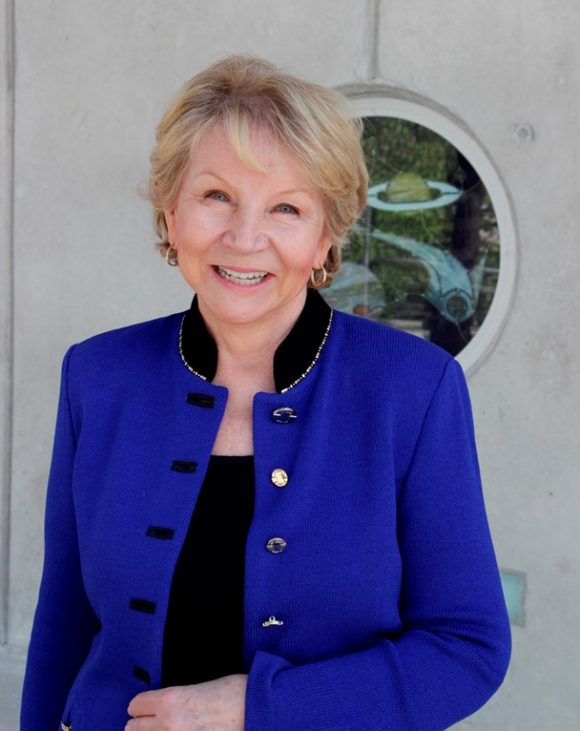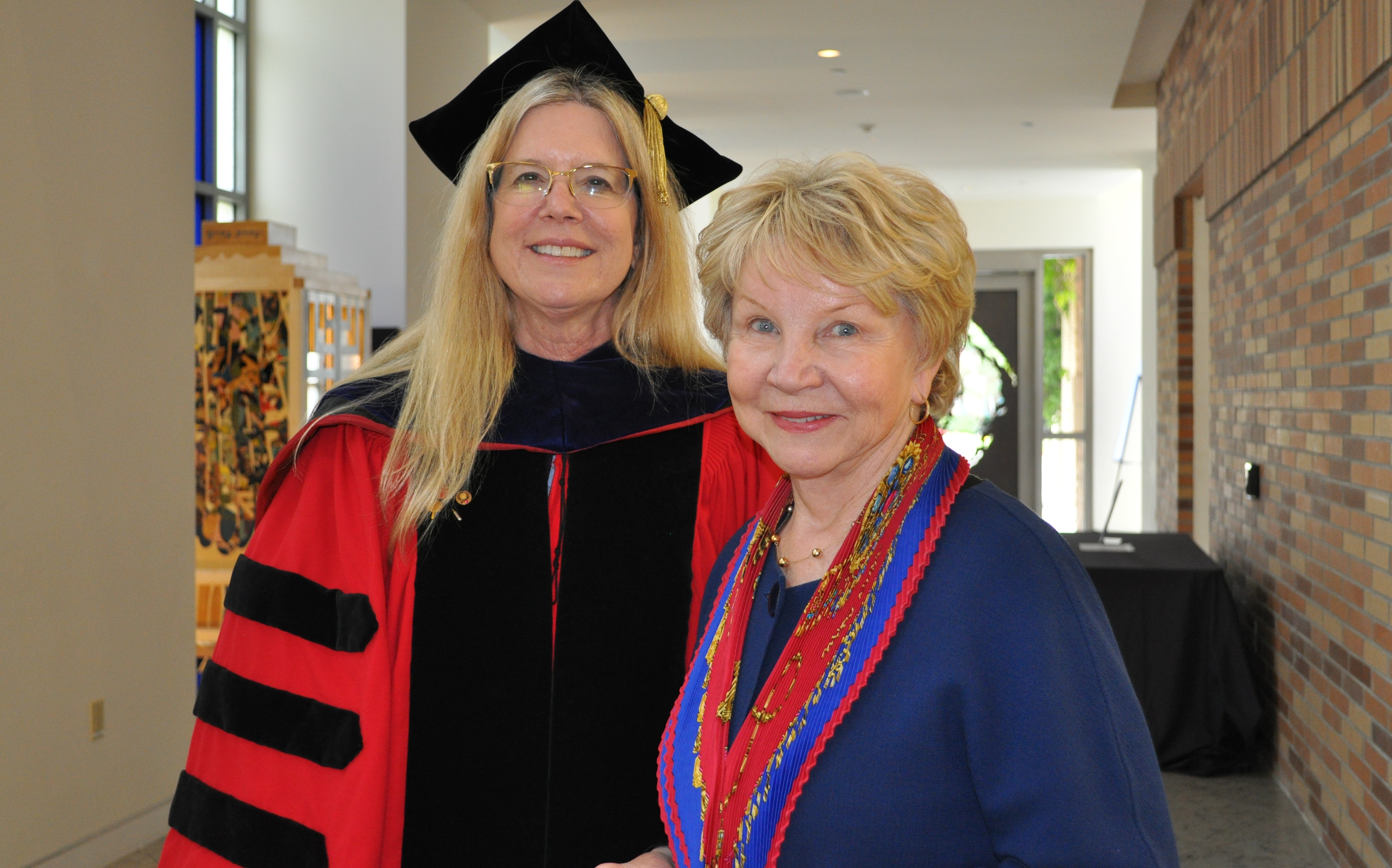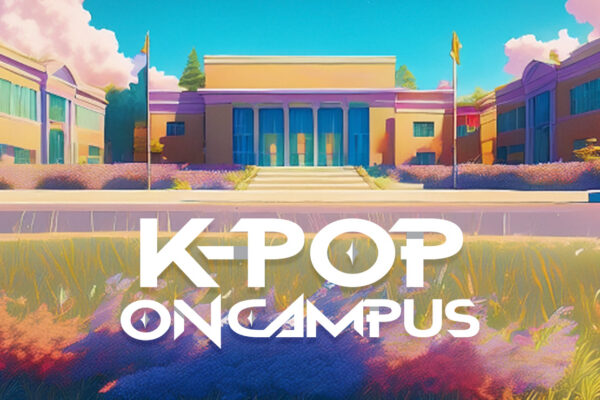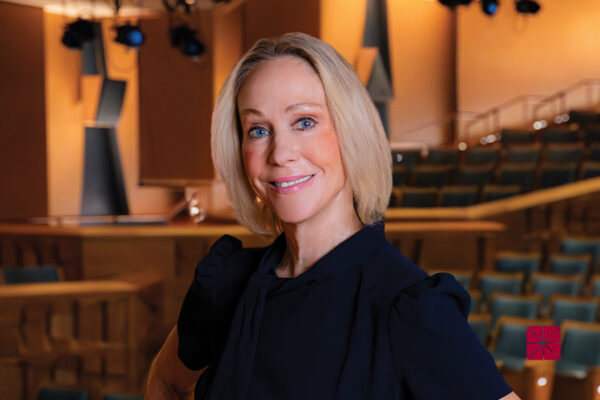When June Scobee Rodgers was in the ninth grade, her high school civics teacher asked everyone to talk about their career dreams. Scobee Rodgers told the class that she had recently read Dr. Albert Schweitzer’s autobiography. The life’s work of the humanitarian physician had so inspired her that she planned to be a research scientist and teacher.

June Scobee Rodgers, the 2016 Albert Schweitzer Award of Excellence honoree.
It was such a bold plan for a girl from “the poorest family among poor neighbors” that her classmates scoffed and teased that she’d never see the inside of a college much less be a teacher. But on Friday Scobee Rodgers (M.A. ’78), widow of Challenger Space Shuttle Commander Richard “Dick” Scobee, was awarded the 2016 Albert Schweitzer Award of Excellence at Chapman University for her work in education and service.
Not only did she go on to teach science, write books and complete graduate work, including a Ph.D. from Texas A&M University, she also founded the Challenger Center for Space Science Education, a STEM education organization.
The high school memory still stings, but the gracious and energetic Scobee Rodgers, now married to retired Army Lt. Gen. Don Rodgers, isn’t the last-laugh type.
“It inspired me. And by golly, I did it,” she said with a chuckle in a Friday afternoon interview before the award was presented at the University’s annual Baccalaureate Service as part of Commencement Weekend.
There were other sources of inspiration through the years, including the support of her late husband, who encouraged her to continue her education, beginning with the same community college he attended. During a stint at Edwards Air Force Base she discovered Chapman, where she earned her master’s in education. She remembers many long commutes along the I-5 freeway to the Orange campus, as well as an English class that pushed her into a much deeper appreciation of literature that was new for the science teacher.
That experience equipped her to teach high school English when science openings weren’t available, as was sometimes the case when their military life moved them around the country. She says it also planted the self-assurance she needed to apply to a doctoral program.
“I thought to myself: Chapman gave me the confidence to say, ‘Yes, I can do that,’” she says.
Even in the depths of grief following the Challenger disaster, Scobee Rodgers turned her thoughts to what she could do next. As the missing-man formation flew by at the memorial service, she says she took to heart the symbolism of the aircraft that stay in formation to salute the fallen and honor them by continuing the mission. For her, that meant taking up the work of Christa McAuliffe, a school teacher and the first American civilian selected to fly in space.
“I said I will continue the education mission. NASA can continue the space mission, I will continue Christa’s education mission. I will do that,” she says.
With unanimous support of the families, she became the founding director of Challenger Center for Space Science Education, which now has centers around the world and has reached more than 4.4 million students with its hands-on science and technology programs.
Learn more
Read more about the Challenger disaster by visiting the The Roger and Roberta Boisjoly Challenger Disaster Collection housed at Chapman University’s Leatherby Libraries.
The first center opened in 1988, so it’s not unusual these days for Scobee Rodgers to meet now-adult students who found inspiration to enter science careers thanks to their experience at one of the centers, where youngsters use the tools of math, engineering and technology to run a mock space mission. One of those students even became an astronaut.
“There are all kinds of rewards later in life,” she says.
Display image at top/June Scobee Rodgers, Ph.D., with Nancy Martin, Ph.D., associate professor, and director of the Albert Schweitzer Institute at Chapman University.





Add comment